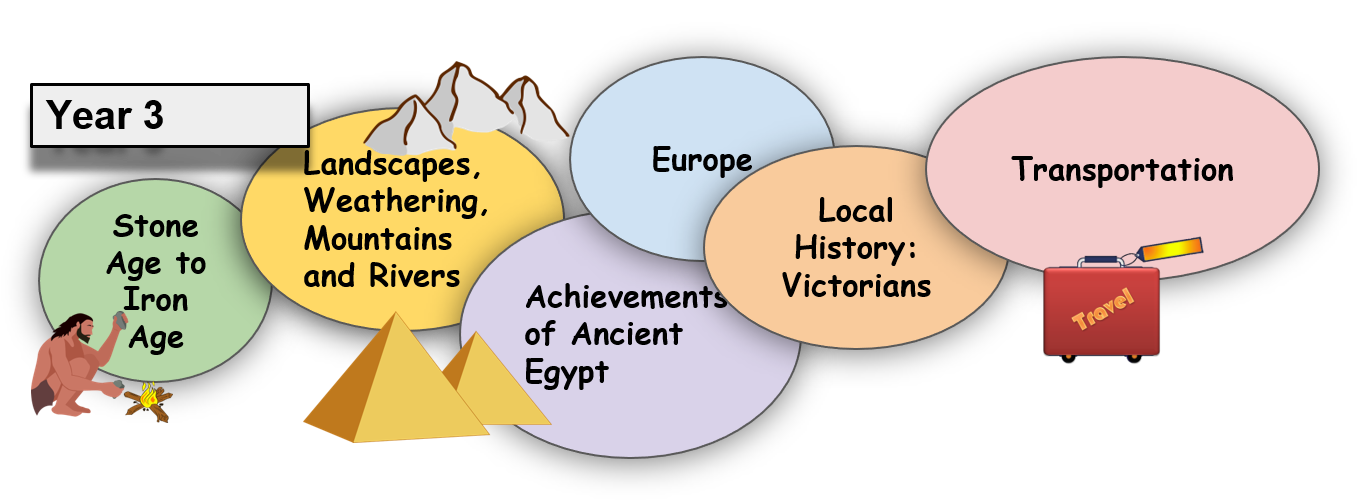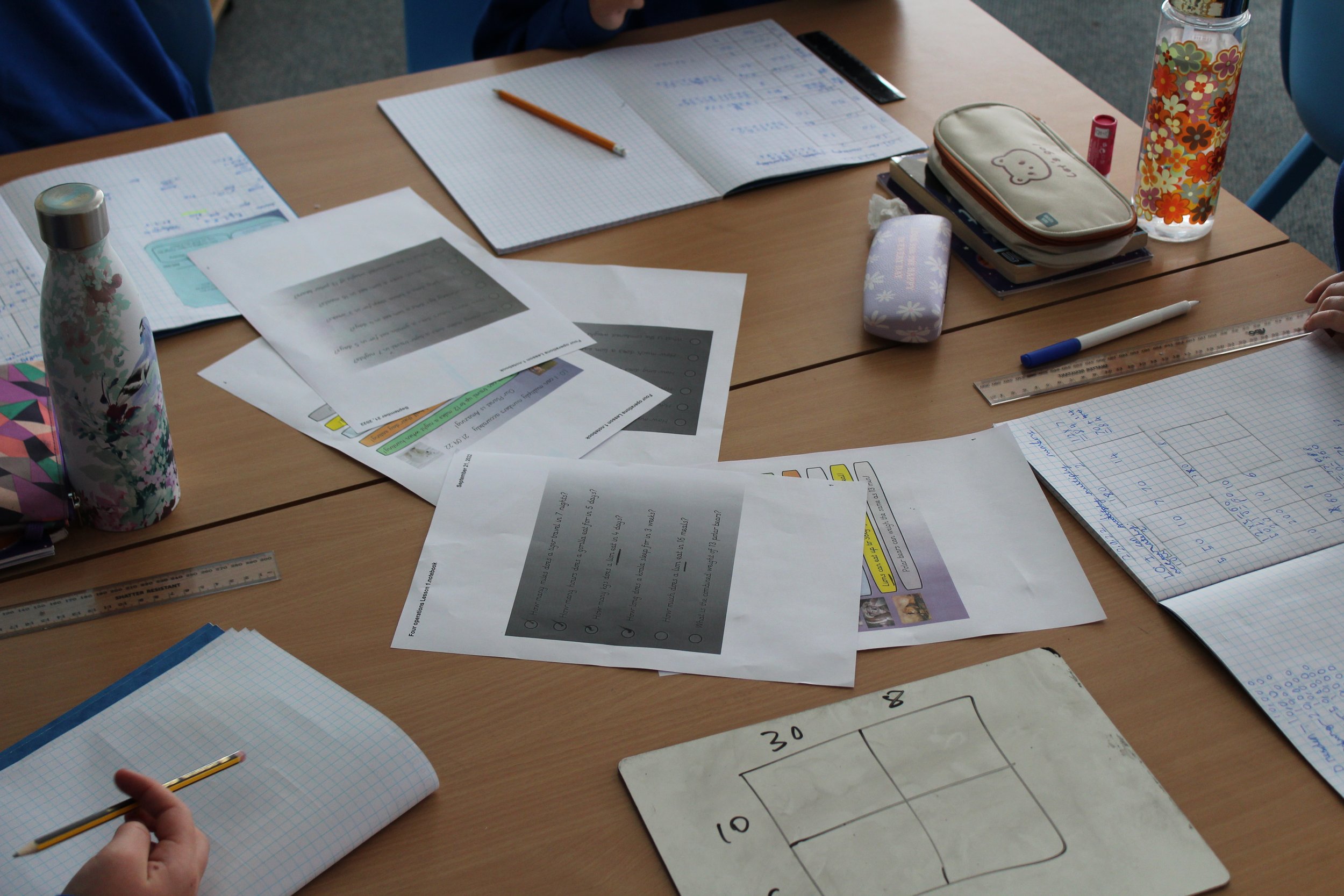
Our vision is to LEARN EVERY DAY, TO HELP EACH OTHER AND TO BE HAPPY.
Curriculum by Subjects
While we value making links across the curriculum, we also believe that the careful planning and delivery of each individual subject is vital. Please read below for a more in-depth look at each subject across the curriculum.
For more information about our school curriculum, please speak to your child's class teacher or contact Adele Fulford (our School Business Manager) - stmargarets@ventrus.org.uk - to make an appointment with our head of teaching and learning.
Our Curriculum Intent
At the heart of our planning is our Curriculum Intent.
The purpose of our curriculum is to increase the quantity and quality of what our students know; to give them a rich hinterland of knowledge and cultural capital which they will have access to and be able to build upon for the rest of their lives. Our curriculum covers all the elements of the statutory National Curriculum while enabling all our children to develop into the best that they can be.
Our Approach
Northam Federation Intent:
Our curriculum has 5 main pedagogical approaches underpinning its creation:
Knowledge
Knowledge is undeniably important in life. Knowledge is what we think about and, crucially, what we think with. The more you know, the better you can think.
Our curriculum is therefore built around powerful, culturally-rich knowledge; knowledge that is, and has been, valued by society, generation after generation. Our curriculum focuses on ‘the best that has been thought and said’.
The implication of this is that our curriculum ensures that students are supported to commit relevant knowledge to their long-term memory. The benefits of this are twofold. Firstly, the capacity to retrieve relevant prior knowledge makes it possible for students to focus on higher-level thinking in their work. Secondly, knowledge is generative. This is to say, once a student has learnt a few pieces of information, and they are supported in seeing the connections between them, they are able to build up a network of this connected information as a schema. In doing so, it becomes easier for them to add new information and recognise its place within a discipline: new knowledge can ‘stick’ to old knowledge
Cultural Capital: We recognise the role that cultural knowledge plays in our lives. Cultural knowledge opens the door to a world beyond our own individual experiences; it gives us a larger world view...
...and every child has an entitlement to access this 'cultural capital'.
Through knowing and understanding some of what the greatest minds have thought and said, our own minds are opened up. Cultural capital develops our ability to understand, to reason and to critique; it sparks our imagination and hones our judgement. By building our curriculum around powerful, culturally-rich knowledge our pupils are encouraged to think about concepts beyond their experience of daily life; it is liberating and life-changing
Concepts: We concentrate on picking out the most valuable knowledge and the most important foundational concepts within each domain and building a curriculum around them.
Our identified key concepts develop a depth of understanding across subjects: They encourage cognitive challenge as pupils grapple with complex theories and notions. Hence enabling knowledge and skills to be fully understood and not simply memorised. Key concepts act as portals for students that make previously inaccessible ways of thinking, possible and enrich their intellectual architecture.
Many of these concepts are written unconsciously into a curriculum. It is our belief that these provide a foundation for understanding and therefore we plan for these explicitly by identifying and sequencing them in the order that they need to be taught. The decisions we make when selecting our concepts and our key concepts are carefully considered and justified, providing both balance and breadth to create a sequential yet ambitious curriculum.
Vocabulary and Oracy: The coherence of our curriculum involves a strong focus on vocabulary. We think with words; words are the building blocks of knowledge.
Conceptual understanding and vocabulary run in tandem with each other: for example, you cannot learn about democracy or rock formation without also learning the subject-specific words associated with these topics. Our focus on vocabulary therefore allows students to become increasingly nuanced in their thinking.
Alongside the understanding of vocabulary, pupils need the skills to communicate their thinking. Therefore, the teaching of oracy lies at the heart of our classroom practice. Oracy can be seen as an outcome, whereby students learn to talk confidently, appropriately and sensitively. Being able to reason, debate and articulate their thinking is a higher-order cognitive skill and enables our students to embed and master complex learning. Development of oracy has not only cognitive gains, but also personal and social gains, as well as civic engagement and empowerment.
Outcomes: Learning can be defined, in part, as ‘a change in long term memory'. For this reason, we recognise that effective teaching is not tied to a single lesson but, rather, what students remember, understand and apply from the curriculum over the long-term.
Knowledge builds on knowledge. Therefore, our curriculum is sequenced cumulatively, always building upon prior knowledge. Summative assessments are, accordingly, cumulative. Therefore, our learning sequences lead towards an outcome through a cumulative learning sequence which spans across subject domains. Our cumulative curriculum makes connections explicit - connections to prior learning and connections across subject domains- making it easier for our pupils to recall, understand and apply knowledge. Leading towards an outcome, provides an ambitious purpose, focus, and time scale for the acquisition of knowledge and skills; focusing on the cumulation and application.
Ambition: Our commitment to academic challenge means that we hold the highest aspirations for all our pupils. This ambition is a constant through every aspect of our curriculum: from developing meaningful and purposeful learning experiences with our curriculum design to the level of engagement we aim for all of our children to show within a learning sequence. We encourage our teachers to take risks with their teaching; to make links and experiences that will resonate with our children for years to come.
Our curriculum covers all the elements of the statutory National Curriculum while enabling all our children to develop into the best that they can be.







